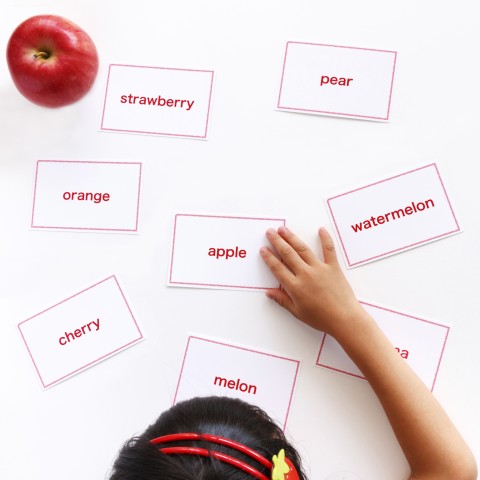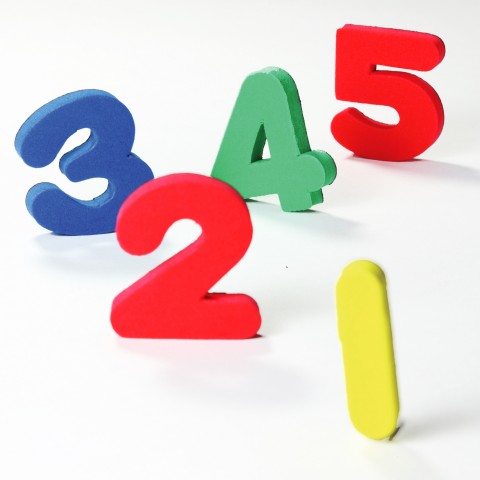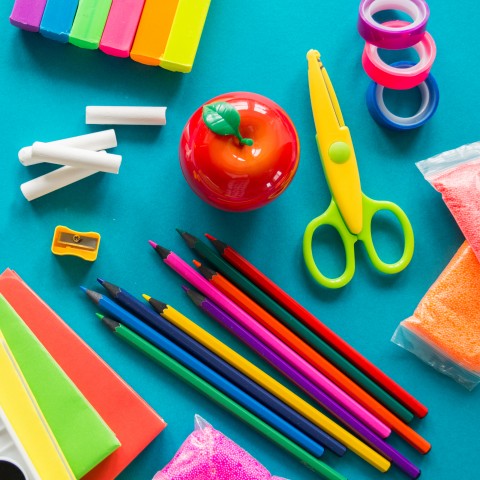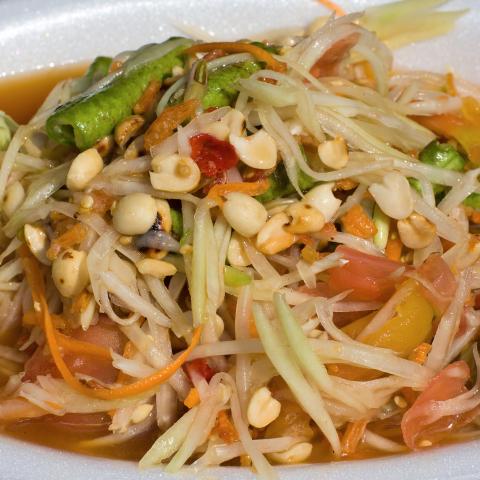
When you start learning any language, it’s important to begin by memorizing the most basic words and phrases. You need words to form sentences, and practicing sentence formation is the best way to gain an understanding of the language’s grammar. In other words, the basics serve as a foundation on which you can build up your language skills.
In this lesson, you’ll learn the most useful Thai words for beginners along with their pronunciation. We’ve categorized the words on this list according to their part of speech, so you’ll get to see and start memorizing all of the essentials in one place.
- → If you’re just starting out, remember that ThaiPod101 also has a series of Thai beginner lessons to help you get your foot in the door!

 Table of Contents
Table of Contents
- Numbers
- Pronouns
- Nouns
- Verbs
- Adjectives
- Conjunctions
- Ending Particles and Auxiliary Words
- Conclusion
1. Numbers
The first set of Thai beginner words we’ll look at are numbers. The word for “number” in Thai is ตัวเลข (dtuua-lêek).
- ศูนย์ (sǔun) = 0
- หนึ่ง (nùeng) = 1
- สอง (sǎawng) = 2
- สาม (sǎam) = 3
- สี่ (sìi) = 4
- ห้า (hâa) = 5
- หก (hòk) = 6
- เจ็ด (jèt) = 7
- แปด (bpàaet) = 8
- เก้า (gâo) = 9
- สิบ (sìp) = 10

Let’s count!
2. Pronouns
Another key set of beginner words in Thai are the pronouns, or คำสรรพนาม (kham-sàp-phá-naam). To make it easier for you to remember and use them, we’ve categorized them based on type: personal, demonstrative, and interrogative.
Personal Pronouns
- ผม (phǒm) = I [male]
- ฉัน (chǎn) = I [female]
- คุณ (khun) = you [formal / male / female]
- พวกเรา (phûuak-rao) = we
- พวกเขา (phûuak-khǎo) = they [human]
- พวกมัน (phûuak-man) = they [animal / object]
- เขา (khǎo) = he
- เธอ (thooe) = she
- มัน (man) = it
Demonstrative Pronouns
- นี่ (nîi) = this / these
- นั่น (nân) = that / those (far from the speaker but near the listener)
- โน่น (nôon) = that / those (far from both speaker and listener)
Interrogative Pronouns / Question Words
- อะไร (à-rai) = what
- ทำไม (tham-mai) = why
- เมื่อไหร่ (mûuea-rài) = when
- ใคร (khrai) = who
- ของใคร (khǎawng-khrai) = whom
- ที่ไหน (thîi-nǎi) = where
- อย่างไร (yàang-rai) = how
- อันไหน (an-nǎi) = which
3. Nouns
As a beginner, you’ll want to focus a lot of your efforts on learning as many nouns as you can. In Thai, these are called คำนาม (kham-naam). Below is a list of some easy Thai nouns in several different categories.
Days
- วันจันทร์ (wan-jan) = Monday
- วันอังคาร (wan-ang-khaan) = Tuesday
- วันพุธ (wan-phút) = Wednesday
- วันพฤหัสบดี (wan-phá-rúe-hàt-sà-baaw-dii) = Thursday
- วันศุกร์ (wan-sùk) = Friday
- วันเสาร์ (wan-sǎo) = Saturday
- วันอาทิตย์ (wan-aa-thít) = Sunday
Time
- วินาที (wí-naa-thii) = second
- นาที (naa-thii) = minute
- ชั่วโมง (chûua-moong) = hour
- วัน (wan) = day
- วันที่ (wan-thîi) = date
- อาทิตย์ (aa-thít) = week [informal]
- สัปดาห์ (sàp-daa) = week [formal]
- เดือน (duuean) = month
- ปี (bpii) = year
Family Members
- ครอบครัว (khrâawp-khruua) = family
- พ่อ (phâaw) = father
- แม่ (mâae) = mother
- พี่สาว (phîi-sǎao) = older sister
- พี่ชาย (phîi-chaai) = older brother
- น้องสาว (náawng-sǎao) = younger sister
- น้องชาย (náawng-chai) = younger brother
- ลูกสาว (lûuk-sǎao) = daughter
- ลูกชาย (lûuk-chaai) = son
Occupations
- อาชีพ (aa-chîip) = occupation
- หมอ (mǎaw) = doctor
- ทนาย (thá-naai) = lawyer
- ครู (khruu) = teacher
- นักเรียน (nák-riian) = student
- ตำรวจ (dtam-rùuat) = policeman
- พนักงานธนาคาร (phá-nák-ngaan-thá-naa-khaan) = banker
- ข้าราชการ (khâa-râat-chá-gaan) = government officer
- พ่อค้า (phâaw-kháa) = seller [male]
- แม่ค้า (mâae-kháa) = seller [female]
- โปรแกรมเมอร์ (bproo-graaem-môoe) = programmer
- ดีไซน์เนอร์ (dii-sai-nôoe) = designer
- นักบัญชี (nák-ban-chii) = accountant
- พนักงานเสิร์ฟ (phá-nák-ngaan-sòoep) = waiter
- ช่าง (châang) = mechanic
- นักบิน (nák-bin) = pilot
- แอร์โฮสเตส (aae-hóot-sà-dtèet) = flight attendant
- นักดับเพลิง (nák-dàp-plooeng) = firefighter
- นักแสดง (nák-sà-daaeng) = actor / actress
- คนขับรถ (khon-khàp-rót) = driver
- นักเขียน (nák-khǐian) = writer

What is your occupation?
Places
- โรงพยาบาล (roong-phá-yaa-baan) = hospital
- โรงเรียน (roong-riian) = school
- ตลาด (dtà-làat) = market
- ธนาคาร (thá-naa-khaan) = bank
- โรงหนัง (roong-nǎng) = cinema
- ร้านอาหาร (ráan-aa-hǎan) = restaurant
- ห้างสรรพสินค้า (hâang-sàp-phá-sǐn-kháa) = department store
- ร้านกาแฟ (ráan-gaa-faae) = coffee shop
- ร้านตัดผม (ráan-dtàt-phǒm) = barbershop
- ห้องสมุด (hâawng-sà-mùt) = library
- สนามบิน (sà-nǎam-bin) = airport
- สถานีรถไฟ (sà-thǎa-nii-rót-fai) = train station
- ท่าเรือ (thâa-ruuea) = pier
- วัด (wát) = temple
- สถานทูต (sà-thǎan-thôot) = embassy
- สถานีตำรวจ (sà-thǎa-nii-dtam-rùuat) = police station
School
- ห้องเรียน (hâawng-riian) = student
- ชุดนักเรียน (chút-nák-riian) = school uniform
- กระเป๋านักเรียน (grà-bpǎo-nák-riian) = school bag
- เครื่องเขียน (khrûueang-khǐian) = stationery
- ปากกา (bpàak-gaa) = pen
- ดินสอ (din-sǎaw) = pencil
- ดินสอสี (din-sǎaw-sǐi) = color pencil
- ยางลบ (yaang-lóp) = eraser
- ไม้บรรทัด (mái-ban-thát) = ruler
- กล่องดินสอ (glàawng-din-sǎaw) = pencil box
- เครื่องคิดเลข (khrûueang-kít-lêek) = calculator
- กระดาษ (grà-dàat) = paper
- หนังสือ (nǎng-sǔue) = book
- สมุด (sà-mùt) = notebook
- คอมพิวเตอร์ (khaawm-phiu-dtôoe) = personal computer
- โน้ตบุ๊ค (nóot-búk) = laptop

I brought a lot of things to school.
Body Parts
- ร่างกาย (râang-gaai) = body
- หัว (hǔua) = head
- ผม (phǒm) = hair
- คิ้ว (khíu) = eyebrow
- ตา (dtaa) = eye
- จมูก (jà-mùuk) = nose
- หู (hǔu) = ear
- ปาก (bpàak) = mouth
- คอ (khaaw) = neck
- หน้าอก (nâa-òk) = breast
- หน้าท้อง (nâa-tháawng) = belly
- หัวไหล่ (hǔa-lài) = shoulder
- แขน (khǎaen) = arm
- ข้อศอก (khâaw-sàawk) = elbow
- ข้อมือ (khâaw-muue) = wrist
- มือ (muue) = hand
- นิ้วมือ (níu-muue) = finger
- เล็บ (lép) = nail
- ขา (khǎa) = leg
- เข่า (khào) = knee
- ข้อเท้า (khâaw-tháao) = ankle
- เท้า (tháo) = foot
- นิ้วเท้า (níu-thàao) = toe
- ขน (khǒn) = body hair
Food
- อาหาร (aa-hǎan) = food
- ข้าว (khâao) = rice
- ข้าวเหนียว (khâao-nǐiao) = sticky rice
- ก๋วยเตี๋ยว (gǔuai-dtǐiao) = noodle
- ผัก (phàk) = vegetable
- มะเขือเทศ (má-khǔuea-thêet) = tomato
- มันฝรั่ง (man-fà-ràng) = potato
- คะน้า (khá-náa) = Chinese broccoli
- กะหล่ำปลี (gà-làm-bplii) = cabbage
- ผักกาดขาว (phàk-gàat-khǎao) = white cabbage
- ผักโขม (phàk-khǒom) = spinach
- ไชเท้า (chai-tháao) = radish
- ฟักทอง (fák-thaawng) = pumpkin
- สาหร่าย (sǎa-ràai) = seaweed
- แตงกวา (dtaaeng-gwaa) = cucumber
- แครอท (khaae-ràwt) = carrot
- หัวหอมใหญ่ (hǔua-hǎawm-yài) = onion
- หอมแดง (hǎawm-daaeng) = red onion
- ต้นหอม (dtôn-hǎawm) = green onion
- กระเทียม (grà-thiiam) = garlic
- ผลไม้ (phǒn-lá-mái) = fruit
- มะม่วง (má-mûuang) = mango
- ทุเรียน (thú-riian) = durian
- เงาะ (ngáw) = rambutan
- มะพร้าว (má-práao) = coconut
- แอปเปิ้ล (aép-bpôen) = apple
- กล้วย (glûuai) = banana
- มะละกอ (má-lá-gaaw) = papaya
- ส้ม (sôm) = orange
- มังคุด (mang-kút) = mangosteen
- ลิ้นจี่ (lín-jìi) = lychee
- องุ่น (à-ngùn) = grape
- แตงโม (dtaaeng-moo) = watermelon
- สับปะรด (sàp-bpà-rót) = pineapple
- เนื้อสัตว์ (núuea-sàt) = meat
- อาหารทะเล (aa-hǎan-thá-lee) = seafood
- หมู (mǔu) = pork
- ไก่ (gài) = chicken
- เนื้อวัว (núuea-wuua) = beef
- กุ้ง (gûng) = prawn
- ปลา (bplaa) = fish
- ปลาหมึก (bplaa-mùek) = squid
- ไข่ (khài) = egg
- เครื่องดื่ม (khrûueang-dùuem) = drinks
- น้ำเปล่า (nám-bplào) = water
- น้ำอัดลม (nám-àt-lom) = sparkling water
- น้ำผลไม้ (nám-phǒn-lá-mái) = juice
- เหล้า (lâo) = alcohol
- ไวน์ (wai) = wine
- ของหวาน (khǎawng-wǎan) = dessert
- ขนม (khà-nǒm) = snack

I love Thai food.
4. Verbs
Verbs are the words we use to identify actions and states of being. In Thai, they’re known as คำกริยา (kham-grì-yaa) and they’re some of the most useful words for beginners to pick up. Let’s take a look.
Daily Routine Verbs
- ตื่นนอน (dtùuen-naawn) = wake up
- อาบน้ำ (àap-nám) = take a bath
- แปรงฟัน (bpraaeng-fan) = brush [your teeth]
- แต่งตัว (dtàaeng-dtuua) = get dressed
- กิน (gin) = eat
- ดื่ม (dùuem) = drink
- ทำงาน (tham-ngaan) = work
- เรียน (riian) = study
- ไป (bpai) = come
- มา (maa) = go
- ขับรถ (khàp-rót) = drive
- ดูทีวี (duu-thii-wii) = watch TV
- ฟังเพลง (fang-phleeng) = listen to music
- ซื้อของ (súue-khǎawng) = buy
- ทำความสะอาด (tham-kwaam-sà-àat) = clean
- ซักผ้า (sák-phâa) = wash clothes
- รีดผ้า (rîit-phâa) = iron clothes
- นอน (naawn) = sleep
Other Common Verbs
- เดิน (dooen) = walk
- วิ่ง (wîng) = run
- ว่ายน้ำ (wâai-nám) = swim
- เล่น (lên) = play
- ออกกำลังกาย (àawk-gam-lang-gaai) = exercise
- ยิ้ม (yím) = smile
- หัวเราะ (hǔua-ráw) = laugh
- ร้องไห้ (ráawng-hâi) = cry
- นั่ง (nâng) = sit
- ยืน (yuuen) = stand
- กระโดด (grà-dòot) = jump
- ให้ (hâi) = give
- รับ (ráp) = take
- เอามา (ao-maa) = bring
- เปิด (bpòoet) = open / turn on [electrical appliance]
- ปิด (bpìt) = close / turn off [electrical appliance]
- ซ่อม (sâawm) = fix
- สั่งอาหาร (sàng-aa-hǎan) = order food
- หยิบ (yìp) = pick up
- วาง (waang) = put down
- ถาม (thǎam) = ask
- ตอบ (dtàawp) = answer
- สั่ง (sàng) = order
- ฟัง (fang) = listen
- พูด (phûut) = talk
- อ่าน (àan) = read
- เขียน (khǐian) = write
- โทร (thoo) = make a phone call
- เรียก (rîiak) = learn
- หา (hǎa) = find / search
- ทำ (tham) = do
5. Adjectives
As a Thai beginner, you’ll find that learning at least a few adjectives will go a long way! You can use these words to flavor your speech or add flair to your writing. In Thai, adjectives are known as คำวิเศษณ์ (kham-wí-sèet). Here are the most common ones in a variety of categories:
Describing Objects
- ใหญ่ (yài) = big
- เล็ก (lék) = small
- สั้น (sân) = short
- ยาว (yaao) = long
- กว้าง (gwâang) = wide
- แคบ (khâaep) = narrow
- ใหม่ (mài) = new
- เก่า (gào) = old
- แพง (phaaeng) = expensive
- ถูก (thùuk) = cheap
- เยอะ (yóe) = a lot [amount]
- น้อย (náauy) = a little [amount]
Describing People
- สูง (sǔung) = tall
- เตี้ย (dtîia) = short
- ผิวขาว (phǐu-khǎao) = light-skinned tone
- ผิวดำ (phǐu-dam) = dark-skinned tone
- ผิวสีน้ำผึ้ง (phǐu-sǐi-nám-phûeng) = tan skin
- สวย (sǔuai) = beautiful
- หล่อ (làaw) = handsome
- น่ารัก (nâa-rák) = cute
- น่าเกลียด (nâa-glìiat) = ugly
- อ้วน (aûuan) = fat
- ผอม (phǎawm) = thin
Describing Emotions
- อารมณ์ดี (aa-rom-dii) = good mood
- อารมณ์ไม่ดี (aa-rom-mâi-dii) = bad mood
- มีความสุข (mii-kwaam-sùk) = happy
- เศร้า (sâo) = sad
- เฉยๆ (chǒoei) = so-so [not happy but not sad]
- เหงา (ngǎo) = lonely
- โกรธ (gròot) = angry
- เบื่อ (bùuea) = bored
- กลัว (gluua) = scared
- อาย (aai) = shy
- กังวล (gang-won) = worried
- ตื่นเต้น (dtùuen-dtên) = excited

How do you feel?
Describing Weather
- แดดออก (dàaet-àawk) = sunny
- ฝนตก (fǒn-dtòk) = rainy
- เมฆครึ้ม (mêek-khrúem) = cloudy
- ลมแรง (lom-raaeng) = windy
- ร้อน (ráawn) = hot
- เย็น (yen) = cool
- หนาว (nǎao) = cold
6. Conjunctions
Learning a few Thai conjunctions will help you sound more like a native speaker!
- และ (láe) = and
- หรือ (rǔue) = or
- แต่ (dtàae) = but
- เพราะว่า (práw-wâa) = because
- ดังนั้น (dang-nán) = so
- แล้วก็ (láaeo-gâaw) = then
- อย่างไรก็ตาม (yàang-rai-gâaw-dtaam) = however
7. Ending Particles and Auxiliary Words
Let’s conclude our list of Thai beginner words with some particles and auxiliaries that you’ll find useful as you continue your studies.
- ครับ (khráp) = ending particle for males; makes the sentence formal
- ค่ะ (khà) = ending particle for females; makes the sentence formal
- จะ (jà) = will
- ต้อง (dtâawng) = must
- ไม่ (mâi) = not
- เคย (khooei) = used to
- กำลัง (gam-lang) = [verb]ing
8. Conclusion
Congratulations! You’ve just taken your first major step into Thai language learning. We hope that you’ll practice and memorize these 200 Thai beginner words, and that they prove useful to you.
What did you think about this list? Do you think it’ll be difficult to remember all of these words? Let us know in the comments!
Once you have these beginner words down, you may want to try other basic Thai lessons at ThaiPod101.com. You might find our lessons Fine-Tuning Your Thai Vowels and Cracking the Thai Writing System particularly helpful at this stage in your learning journey.










